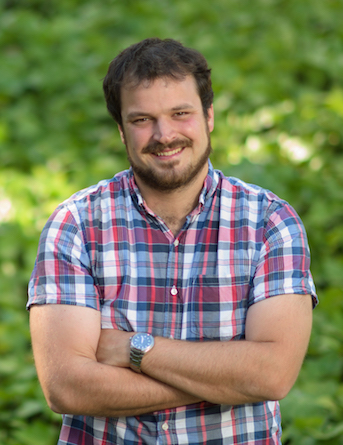Aaron Strong
Education:
Ph.D. Environment and Resources, Stanford University, 2016
M.A., Climate Change Policy, Tufts University, 2011
B.A., Political Science and Biology, Swarthmore College, 2006
Research Projects
- Team Leader: Ocean & Coastal Acidification in Maine
- Team Member: Getting over the dam
Resources
- Aaron Strong organizes Maine water monitors for better ocean health – Article in Portland Press Herald, July 2, 2017
- Coming Home – Article in Solutions, June 2017
- Mitchell Center Seminar, September 2016 – Does the value of nature depend on whom you ask? Should it? – Posted to Vimeo
Research Interests
- Coastal and marine policy
- International ocean policy
- Climate change policy
- Coastal pollution policy
- Marine conservation policy
- Social-ecological systems
- Sustainability science
- Community sustainability
- Institutions
- Ecosystem services
- Coastal zone management
- Ocean acidification, water quality
- Marine climate change
- Estuarine biogeochemistry
- Community-engaged learning
- Environmental education
- Sustainability pedagogy
Profile
Aaron is interested in understanding the governance of ecosystem services — the market and non-market values that human beings derive from functioning ecosystems. His research is particularly focused on understanding the development of emergent environmental governance institutions and approaches for managing problems of carbon and nitrogen cycling in coastal ecosystems: climate change, ocean acidification, and problems of water quality and pollution. In his work, he focuses across scales, studying international organizational approaches, federal and state agency-practices, and local community sustainability initiatives.
Trained in an interdisciplinary manner, his research adopts a mixed methods approach, combining quantitative, indicator-based policy analysis that relies heavily on biogeochemical monitoring data, with qualitative in-depth semi-structured interview-based data collection and participant observation approaches in addressing questions at the nexus of sustainability science and marine policy. He firmly believes in a sustainability science approach to studying environmental problems.
Selected Publications
Haya, B., Strong, Aaron L., Grubert, E., and D. Cullenward. 2016. Carbon offsets in California: Science in the policy development process. In: Drake, J.L., Kontar, Y.Y., Eichelberger, J.C., Rupp, T.S., Taylor, K.M.(eds).
Communicating Climate Change and Natural Hazard Risk and Cultivating Resilience: Case Studies for a
Multidisciplinary Approach. Cham (Switzerland): Springer Press. pp. 241-254.
Strong, Aaron L. Johnson, T.P., Chiariello, N.R., and C.B. Field. 2016. Experimental fire increases soil carbon dioxide efflux in a grassland long-term, multi-factor, global change experiment. Global Change Biology. Accepted for publication.
Strong, Aaron L., Lowry, K.E., Brown, Z.W., Mills, M.M., van Dijken, G.L., Pickart, R.S., Cooper, L.W., Frey,K.E.,
Benner, R., Fichot, C.G., Mathis, J.T., Bates, N.R., and K.R. Arrigo. 2016. Mass balance estimates of carbon
export in different water masses of the Chukchi Sea shelf. Deep Sea Research II: Topical Studies in
Oceanography. 130: 88-99.
Mills, M.M., Brown, Z.W., Lowry, K.E., van Dijken, G.L., Becker, S., Pal, S., Benitez-Nelson, C., Strong, Aaron L.,
Swift, J.H., Pickart, R.S., and K.R. Arrigo. 2015. Impacts of low phytoplankton NO3-:PO43- utilization ratios over
the Chukchi Shelf, Arctic Ocean. Deep Sea Research II: Topical Studies in Oceanography. 118:105-121.
Arrigo, K.R., van Dijken, G.L., and Aaron L. Strong. 2015. Environmental controls of marine productivity hot spots around Antarctica. Journal of Geophysical Research – Oceans. 120: 5545-5565.

